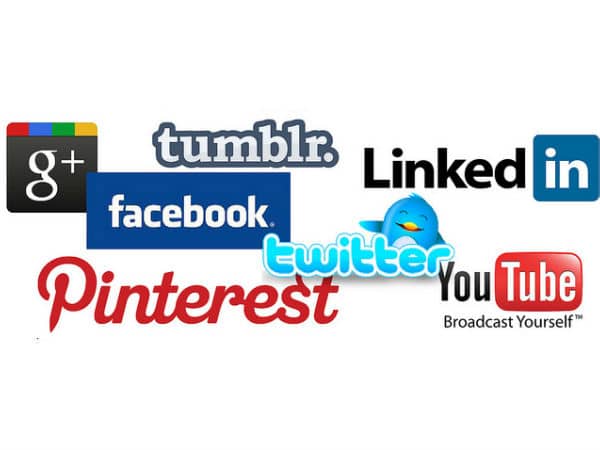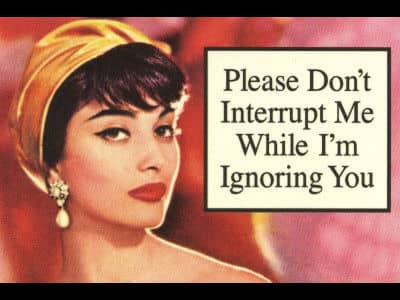- Do you find yourself obsessed with everyone else’s lives?
- Do you get the majority of your information from social media?
- Would you be able to permanently disconnect yourself from social media outlets?
In General, Social media is a forum that opens a lot of doors but can also be rather obsessive – especially if find yourself pretending to be Inspector Gadget. Do you think you have a social media problem?
Here are seven signs you’re a social media stalker.
Number 6

Have you a social media problem? Or are you IT ? !
Social Media References
You find yourself making constant social media references.
When having conversations you’ll consistently refer to the «conversations» that you saw on Facebook or Twitter, – these could be conversations you actually interacted in or ones that you just scoped out.

While social media has proved to be an effective medium of communication, there are some concerns.
Because of the vast amount, the door for social networking abuse is left wide open.
About Social Networking
Social networking actually existed before Facebook. Online communities began building in the late 1990s with sites such as Classmates and SixDegrees. It wasn’t until around 2005 when social networking exploded with MySpace, Facebook and Xanga.
Although these online social communities have many positive attributes, there is one major negative attribute that all these sites have in common: Social networking abuse.
How Social Networking Abuse Occurs
There is nothing too technical about how people go about abusing others on social networks. It’s actually very simple: People lie. There are, of course, more complicated technical ways such as hacking into user accounts, accessing e-mail address books and finding and posting fake pictures so the abuser appears as someone he or she is actually not. Regardless, abuse happens when people lie and unfortunately, it is becoming more common as social networking sites begin to grow.
An Open Door for Predators
Here is the most common scenario for social network predators:
- The predator opens an account using a fake name and birth date.
- The predator will post a picture of someone else, usually a picture of someone around the same age of the predators «target group.»
- The predator then is open to troll around the social networking websites as, for example, a 16-year-old girl when really the predator is a 42-year-old pedophile.
The Statistics
- A study conducted by the Crimes Against Children Research Center, one in seven children aged 10 to 17 were victims of an online sexual solicitation.
- In that same study, one-third of the children in this age group received what is called «aggressive sexual solicitation». This means the predator asked to physically meet them, corresponded with them through regular mail (meaning the child gave the predator his or her home address) and/or received gifts.
Other Abusers
Unfortunately, sexual predators are not the only social network abusers; there are also cyber bullies.
About Cyber Bullying
Cyber bullying is a lot like real-life bullying and incidences are on the rise. Bullies often add users to their online network of friends, with the intention of being anything but. The bully then begins to harass the user in much the same way he or she would harass a victim in person through the use of teasing, derogatory remarks and put-downs (often referred to as «flaming»). Other ways cyber bullies harass their victims is through by listing the people they do not like and writing derogatory remarks about them on their pages. A final thought about cyber bullying is that one of the most common reasons reported as to why it is on the rise is due to the anonymity offered by the Internet. Bullies on the Internet are less likely to get in trouble than a bully on the playground because they do not have to use their real names or pictures online. Instead, they use screen names and avatars.
How to Help Prevent Abuse
The only way to completely protect young people from abuse on social networks is to banish Internet use all together. Since that is never going to happen, here are a few steps young adults, children and parents can take in order to help prevent abuse on social networks.
Children and Young Adults
- Never engage – Don’t respond to unsolicited e-mail or friend requests. There is no way of knowing who is asking to be your friend. Yes, it could be someone you know, but it also could be a predator. Don’t take the risk, simply do not engage.
- Make your account private – Only the people you choose will be on your friends list.
- Block users – If cyber bullying is occurring through e-mail, block the user’s address.
- Never give out personal information – This includes real name, home address, phone number and age.
- Report unwanted sexual solicitations – Sexual solicitations must be reported to your local authorities. If you plan on doing so, be sure to keep a copy of whatever the predator has been sending you.
- Report cyber bullying – you can report cyber bulling to school officials and law enforcement.
For Parents
- Monitor computer usage – This becomes more difficult as children grow into teenagers. Having an open and honest dialogue with your teen-aged children will help them understand your concerns and worries.
- Use parental locks – Each computer operating system is a little different, explore yours and get to know how to properly use locks and limits.
- E-mail forwarding – Have your young child’s e-mail forwarded to your e-mail, while keeping a copy locally in his or her account.
A Final Word About Abuse
There is no sure fire way to stay 100 percent safe on the Internet. The only things a user and parent can do is stay aware and alert of predators and cyber bullies.













 «The Dark Side»
«The Dark Side»